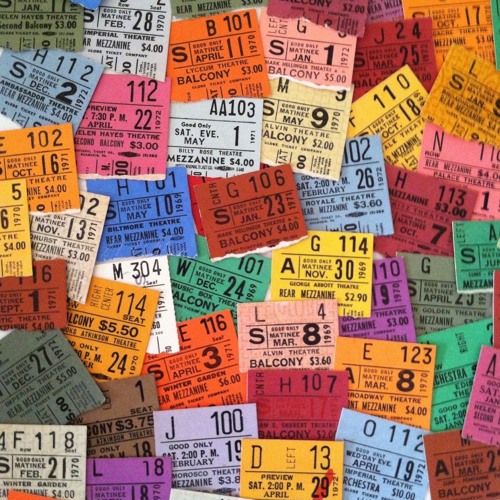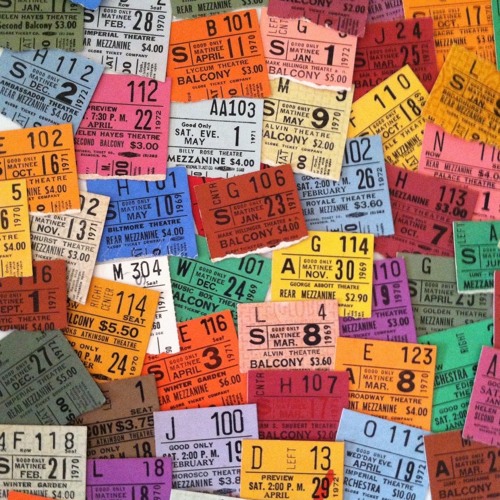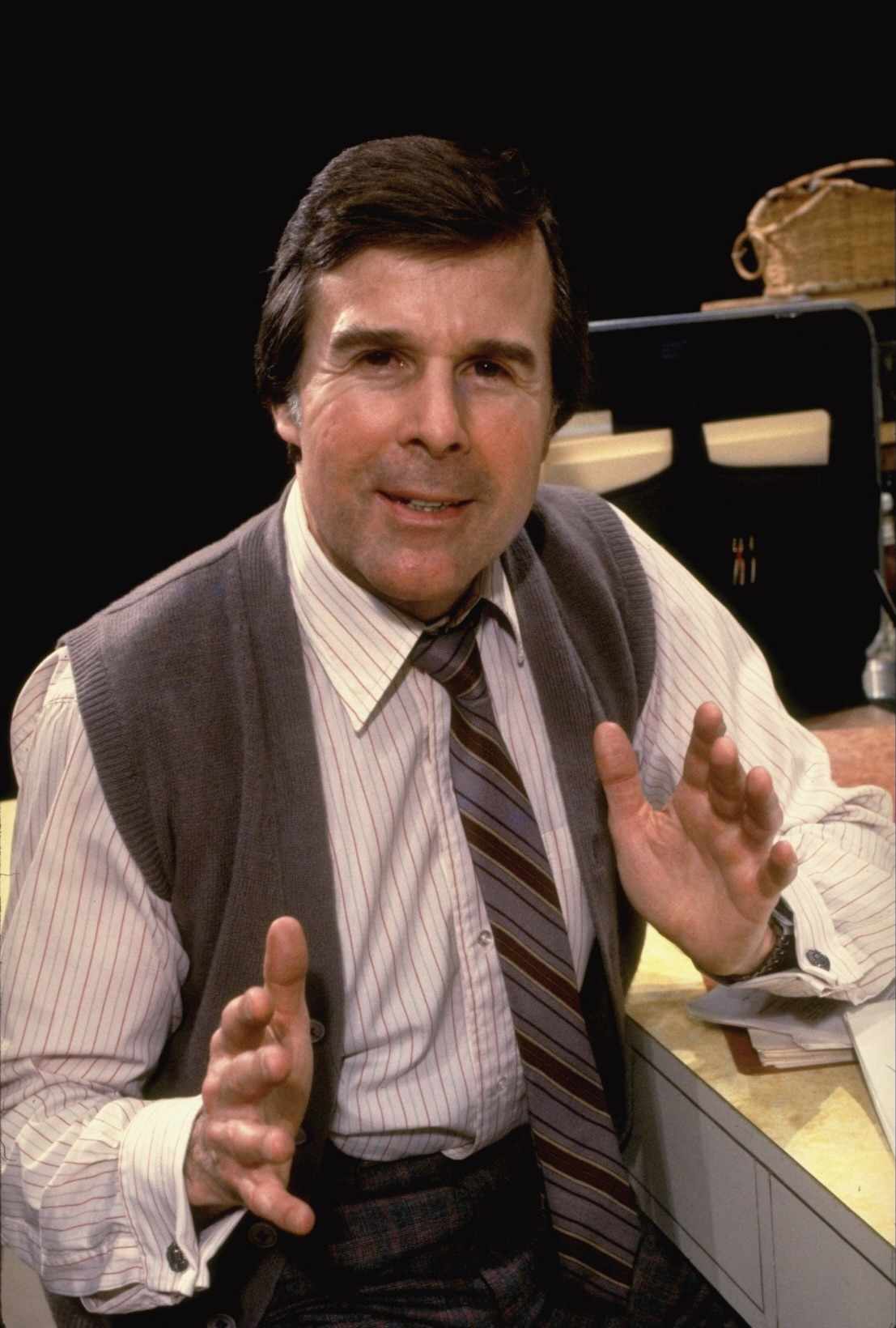
March 10, 2023: Theatre Yesterday and Today, by Ron Fassler
On March 11, 1973, an extraordinary event took place on Broadway that captured a moment in time when the world officially caught up to the advanced talents of Stephen Sondheim. Eyes were opened that night to the remarkably rich and varied achievements of what was then just a sixteen-year career. Involving thirty-three performers and a thirty-piece orchestra, it took place at the Shubert Theatre on Boris Aronson's set for A Little Night Music where, only two weeks earlier, it had opened to some of the composer's best reviews. The third in a quick succession of musicals, the scores to Company (groundbreaking), Follies (breathtaking) and Night Music (sumptuous) won Sondheim Tonys three years in a row, a feat that's never been topped. And long before benefits of this sort became de rigueur, the evening was a harbinger of hundreds that have followed. In terms of sheer theatrically (directed by the Sondheim's good friend and collaborator Burt Shevelove) it raised the bar to a level never attempted, let alone accomplished. At over three hours, the thunderous ovations, star power and emotional highlights never stopped.
It was produced by the actor Kurt Peterson, whose association with Sondheim began when he played Tony in a 1968 Lincoln Center West Side Story revival and continued three years later when Peterson created the role of Young Ben in Follies. The event was first conceived as a dinner to honor Harold Prince, already then a legend as a producer and director, and serve as a fundraiser on behalf of AMDA (the American Musical and Dramatic Academy), of which Peterson was a graduate. At the time, Peterson was a fledgling producer, actively seeking backers as part of a team that would go on to present the first London production of Gypsy, starring Angela Lansbury, set to open that spring. However, all best laid plans were thwarted when Prince turned down the tribute. Peterson chose to go to Sondheim next, who was then nearing his forty-third birthday. Though wary, Sondheim conceded after thinking there would be little harm in having a dinner or, as he put it, "eating your chicken a la king and get up and blush and you've done your bit."

Troublesome news came when, as Peterson told me in a recent chat, AMDA began to get cold feet. "Philip Burton was an acting teacher and one of AMDA’s founders as well as Richard Burton's adoptive father [born Jenkins, Richard took the name as an homage to the man who changed his life]. It was not very well known, but Richard was a hemophiliac and through him and Philip we got the National Hemophilia Foundation to co-sponsor." This was just one in a succession of one door closing and another opening, causing Peterson to look back on the tribute as "an accidental legendary evening, insofar as the universe really created this in a way and we were just holding its hand."
Peterson was also responsible for recruiting Craig Zadan to come on board. Zadan, who would later become a major theatre, film and television producer, was then a twenty-three-year-old journalist working on Sondheim & Company, later to become part of every theatre aficionado’s library. Through his research for the book, Zadan had developed connections with many of the composer's friends and co-workers and Peterson was smart to tap him and his then-partner, Neil Applebaum, as assistant producers (Applebaum, it should be noted, was responsible for the Scrabble logo which became so significant that the recording is often referred to affectionately as the "Scrabble Album"—an homage to Sondheim's penchant for puzzles). Slowly, as more and more luminaries agreed to take part in the show, a decision was wisely made to house the event in a Broadway theatre instead of the Plaza Hotel, which meant bye bye to the chicken a la king. With the procurement of Burt Shevelove and Donna McKechnie to stage and choreograph it, the evening was broken down into four sections: early work for which Sondheim wrote lyrics only; cut songs from various shows; comedy numbers, and leading lady solos.
I vividly recall as a sixteen-year-old teenager seeing the ad in the Sunday Arts & Leisure section of the Times knowing it was a must-see. But when I looked at the prices in the teeny tiny print (get out a magnifying glass—it's there) I remember thinking, "Gee, $10 ticket in the balcony is way too steep for me." Sigh.

If you're familiar with who sang what on the eventual recording, as well as being a deeply knowledgeable fan, you'll know that every actor involved had a role in a Sondheim show, one way or another. That is, with the exception of Jack Cassidy, who at one time had been attached as the leading man in Sondheim's first musical, Saturday Night, cancelled in 1955 when its producer died. As it happened, songs from Saturday Night were to be included in addition to well-known songs associated with well-known talents. Some numbers would be reassigned, such as the idea that Ethel Merman, besides naturally singing from Gypsy, would hopefully perform "I'm Still Here" from Follies as well. Today it's been covered by everyone, but in 1973, no one had really heard "I'm Still Here" sung by anyone except Yvonne de Carlo, who created the role of Carlotta, and her understudy Sheila Smith, who went on often. Then why did the Merm bow out, you ask? Let's just say that she asked for a number of... shall we call them accommodations? Impossible to fulfill, she begged off with the excuse that she needed to be in Florida that weekend to be with her granddaughter.
And THAT'S why we have no recording of Ethel Merman singing "I'm Still Here." But we do have Nancy Walker. More on that later.
Zero Mostel, also initially advertised, quit early on when he was denied the stage time he demanded. And Phil Silvers, who had suffered a mild stroke the previous August while appearing in the Broadway revival of A Funny Thing Happened on the Way to the Forum, wanted to do it, but had yet to sufficiently recover from his illness (he eventually did and played Forum on a tour of the U.K. in 1974). As a result of three big names now gone, Columbia Records was no longer interested in recording it as an album. Happily, Warner Bros Records agreed to do it. “Sometimes—there's God—so quickly!”

Among the multitudes of serious bootleg collectors out there is a recording of the tribute in its entirety that has been circulating for half a century. It features songs not included on the album as well as every speech that was given by such Sondheim collaborators as Sheldon Harnick, Jule Styne, Leonard Bernstein, Anthony Perkins, Goddard Lieberson, Diana Krasny, George Furth, James Goldman, Burt Shevelove, Mary Rodgers and Harold Prince. I have a copy that some kind person took the time and care to clean up and it sounds almost as good as the CD. Most of the songs that didn’t make it onto the album are due to serious flubs, microphone issues, and even some of the performances that turned out less than ideal. In the case of Glynis Johns’s rendition of “Send in the Clowns,” in spite of having laryngitis and literally croaking the song, her acting of it is still unparalleled.
Anyone care for a listen?
How about that ovation? And if you’re wondering who gets the upswell of applause when Johns finishes, that’s Dorothy Collins stepping forward. To my mind, her “Losing My Mind” even tops the already definitive one she recorded for the Follies Original Cast Album. It’s important to state that though numbers were rehearsed on an individual basis, each person only had a chance with the orchestra once prior to the curtain going up. With so much to attend to the day of, the promised run-thru never happened.
For those who may now plan to check out the album after reading this, here are a few things to which you should pay close attention: West Side Story's "America," the first number that tore the roof off the theatre, led by that show's original Anita, Chita Rivera; the brilliant Ethel Shutta stopping the show with "Broadway Baby," allowing her the center spotlight for the final time in her career (she died three years later at age eighty); the sublime trio of Donna McKechnie, Pamela Myers and Susan Browning recreating "You Could Drive a Person Crazy" and Laurence Guittard and Teri Ralston, comedically hitting all the right notes with the Sondheim lyrics vetoed by Richard Rodgers (and, if legend has it, Mrs. Rodgers as well), for "We're Gonna Be All Right" from Do I Hear a Waltz?

Due to it being fifty years since this night, most participants have left us (only fourteen are still alive).Among the highlights from those departed and immortal souls: John McMartin and Dorothy Collins as Ben and Sally singing "Too Many Mornings," preceded by its original lead-in, "Pleasant Little Kingdom"; Angela Lansbury with two songs, "Me and My Town" and "A Parade in Town" from her first Broadway musical, the little seen Anyone Can Whistle, and Larry Kert segueing into Being Alive after introducing us to a bit of "Happily Ever After," Sondheim's first attempt at Company's eleven o'clock number. And take in the roars that break out late in the proceedings when Ron Holgate sings "Beautiful Girls" while introducing the six leading ladies who closed the show.

Saving the best for last (and honestly, it's not just an opinion—Sondheim thought so too), Nancy Walker's "I'm Still Here" was a sensation. One of the reasons was that so many in the audience were unfamiliar with her musical theatre bona fides. She hadn't been in a Broadway musical since 1960's Do Re Mi and first made her debut at age twenty-one in 1941's Best Foot Forward thirty-two years earlier. Throughout the 1970s, Walker was a far more familiar TV face as Valerie Harper's mother, Ida Morgenstern, on both The Mary Tyler Moore Show, and its spin-off, Rhoda, as well as playing Mildred, Rock Hudson and Susan St. James's maid on McMillan & Wife. But it was as Rosie the Waitress, the pitch person for Bounty paper towels ("the quicker picker upper") that made her a daily household presence for years.

It would be easy to list the virtues of what the 4' 11" actress monumentally pulled off, but perhaps it's best to let her tell it, modestly, in her own words. This excerpt is from On Performing, written by Walker's husband, the renowned theatrical voice coach, David Craig:
“It was a chaotic evening. We were all so nervous because we were going to be singing for the master and we all wanted to be so good for him and so right. I hadn’t been able to remember the lyrics, straight through, throughout the six weeks I rehearsed the song. They… just escaped me. The day before the show I had sung the song for Steve at his home. I hadn’t remembered the lyrics, and he said: ‘Uh, listen. I’d like to add sixteen more bars.' And I said: 'Why not? I don’t know these, so why not add some more?’ I got, as did everyone, one run-through with the orchestra and was told that was because they were pressed for time. I didn’t get the lyrics right then, either, and I haven’t gotten them right since.”
“I had absolutely no idea what I was going to do with the song. It was getting nearer and nearer to the moment when I knew I was going ‘on,’ and I thought: ‘Good God! What do I do?’ But I’ll tell you what happened when I started singing. Halfway through the first chorus I heard or felt—I’m not sure which—a great rumbling. And I knew that if I didn’t get out of its way, I would be pushed right into the orchestra pit… all I knew was that I had to get out of its way. And so, mentally, I just stepped over a foot to the left, and I just let it roll past me. It was the first time I ever got out of my way in my singing. And I thought, 'I’ve been free before, but never this free!” And it was a great freedom!'”
That might be my favorite description of singer and a song—ever. And, after all that, here it is:
Also of note, the 11-minute overture that was arranged specially by Jonathan Tunick, one of Sondheim's most essential working partners. It is a joyful listen as conducted by Paul Gemignani, then in the early days of his long career and who, in a few months, would take over as Musical Director of A Little Night Music upon the sudden death of Hal Hastings. Gemignani would remain in constant association with Sondheim, conducting the next six of his original musicals, in addition to numerous shows written by a variety of composers.
Over the years, I've quizzed friends who were in the audience that night. Here are some quotes culled from the personal memories of three with whom I recently spoke, all barely out of their teens at the time:
"It was the moment and the event and the opportunity all coming together at once, which doesn't always happen. And it was the right moment and the right concert, and it was the right time, and they had the right people... it was remarkable." - Kenneth Kantor (Phantom of the Opera).
"The 'America' number, led by Chita Rivera brought down the house. And there I was in awe up in the balcony, this college musical theatre geek, never dreaming that one day I would not only work with Chita but count her as a friend." - David Garrison (A Day in Hollywood/A Night in the Ukraine Tony Award nominee).
"'Sondheim: A Musical Tribute' was one of the five greatest evenings I've ever spent in the theatre. The others are: The 25th Anniversary of the Tony Awards, 'Mary Martin & Ethel Merman Together on Broadway,' Merman's opening night in 'Hello, Dolly!' and the final performance of 'Nicholas Nickleby.' All of those are in a totally different sphere... But the timing of 'Sondheim: A Musical Tribute' was flawless. It's unique, it's special, it's in a class all its own. I've thought of March 11, 1973 every March 11th since." - Joshua Ellis (Broadway publicist).
Towards the end of the night, one of those happy accidents Peterson mentioned earlier led to something that made a memorable evening even more so. Lee Remick, co-star of Anyone Can Whistle and one of Sondheim's dearest friends, had been scheduled do its title song. When it was apparent days before the concert that Remick was not going to be able to extricate herself from a film she was shooting, it was agreed that Sondheim, seated at the piano and accompanying himself, would substitute. It turned out so perfect that it's inconceivable it wasn't the original plan to begin with. Though not possessing a great voice (or even a very good one), the man who wrote the words and the music simply can't be topped when it comes to interpreting one of his most achingly poignant songs.

Lastly, in celebration of its anniversary, Kurt Peterson has put together a look back at Sondheim: A Musical Tribute that will be presented online tomorrow evening, March 11th at 7:22 p.m., fifty years to-the-minute it all began. It will include his personal recollections as well as those who took part in the concert, those who were in the audience, and those who have been influenced by it in their work and art over the years. You can view it at this link.
Be there. I know I will.
If you enjoyed this, please check out Up in the Cheap Seats: A Historical Memoir of Broadway, available at Amazon.com in hardcover, softcover and e-book. To receive all future columns by email, hit the blue FOLLOW button above and feel free to comment below or write me at Ron@ronfassler.org.























Write a comment ...